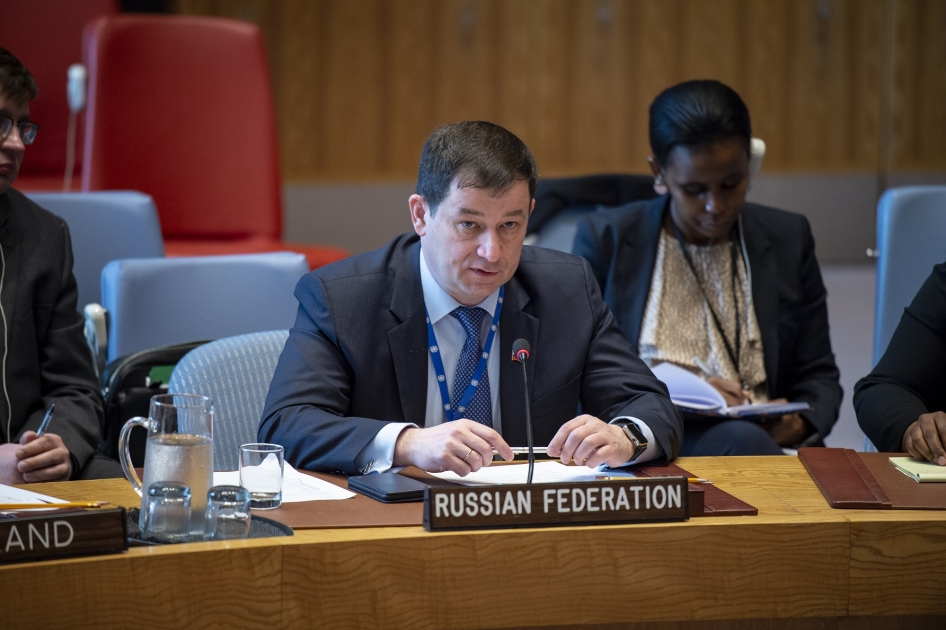Statement by First Deputy Permanent Representative Dmitry Polyanskiy at the UN Security Council Meeting on Abyei
Distinguished Mr. President,
We thank Under-Secretary-General J-P.Lacroix for the information he shared about the course of inter-Sudanese settlement and the activity of the United Nations Interim Security Force for Abyei. We welcome Special Envoy of the Secretary-General Parfait Onanga-Anyanga in his new capacity and thank him for the report.
We proceed from the assumption that joint efforts by the sides are imperative for successful promotion of inter-Sudanese settlement. Bilateral agreements signed by Khartoum and Juba in 2012 in Addis-Ababa, as well as relevant UNSC resolutions build a solid base for their interaction.
We cannot fail to mention significant progress in inter-Sudanese relations that has outlined after September 2018. Effective participation of Khartoum in mediator efforts of the IGAD on revitalization of South Sudan peace process has helped to break the stalemate of peaceful settlement. We join the call of the Secretary-General to use this positive momentum in the interests of Abyei settlement.
We hope that the AU High-level Implementation Panel will remain an important mechanism that promotes normalization of relations between the two countries.
We find it positive that the general dynamics of the situation in Abyei is stable. Interim Security Force for Abyei seeks to maintain constructive relations with local communities, which we find very reassuring. We should support the measures taken by the UN workers on the ground to prevent inter-communal conflicts, establish cooperation of the communities on law enforcement and economic activities at the Amiet common market. Without this action, it is impossible to restore trust and achieve reconciliation of the two communities.
We regret that not all provisions of the inter-Sudanese agreement from June 20, 2011, are put in practice. The region preserves vacuum of power. The demilitarized status of Abyei and buffer-zone at the inter-Sudanese border is violated. We would like to see more regular contacts of the sides.
We have carefully studied the information provided by the UN Secretariat regarding the parties’ compliance with the target indicators regarding the launch of the full-scale operation of the Enhanced Border Joint Verification Mechanism (EJBVM) that are part of UNSC resolution 2438. We point out that both Khartoum and Juba have been working on those indicators during the entire report period and achieved significant progress. We are convinced that success will depend not only on political will of the parties, which they proved to have, but also from the objective circumstances and dynamics “on the ground”.
We proceed from the assumption that the EJBVM is an indispensable part of the incident-prevention system between the sides. Termination of its support by the EJBVM can have an extremely negative impact on the prospects of full settlement of the situation around Abyei. We were guided by this when we supported the adoption of UNSC resolution 2456 that should extend the EJBVM mandate and facilitate border control mechanism until 15 October 2019.
Mr. President,
We all know the factors that prevent Khartoum and Juba from fostering the final settlement regarding the status of Abyei. Against such background, the presence in the region of the United Nations Interim Security Force remains relevant.
In this regard, Russia supports the proposal of the Secretary-General to extend the UNISFA mandate for another 6-month term. We proceed from the assumption that considerations of the Secretariat’ proposals regarding the civil component of the Mission should take into account the opinion of Khartoum and Juba, as it is required by the basic peacekeeping principles.
I thank you.
